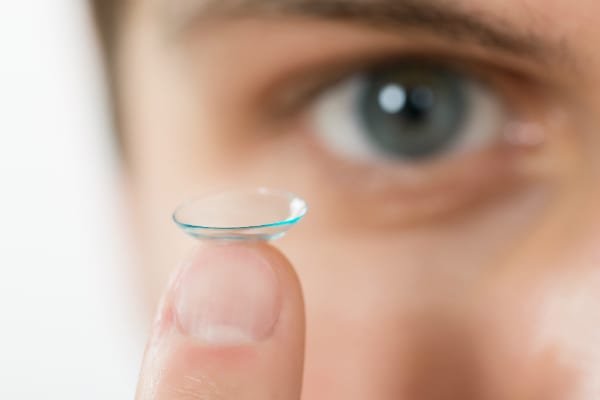NEWS
Are There Contacts That You Can Sleep In?

Do you want the freedom of being able to sleep in without having to take your contacts out? Using normal lenses for your contacts can be quite uncomfortable, especially if you tend to move around a lot at night.
However, you don’t want to wear your contacts full time because your eyes need some time without them as well.
This is why many people are now interested in learning about contacts that you can sleep in. Check out this list of the best overnight contacts and learn how to take care of your eyes while still sleeping through the night.
Extended Wear Contact Lenses
Extended-wear contacts are specially designed for you to wear continuously, even when you’re sleeping. They’re made from materials that allow enough oxygen to reach your eyes. This keeps them healthy.
These lenses are approved by the FDA for overnight wear. So you can wear them without taking them out. This provides you with convenience and flexibility.
It’s important to remember that not all contact lenses are suitable for extended wear. So it’s essential to talk to your eye doctor to see if this option is right for you.
Continuous Wear Contact Lenses
Continuous-wear lenses are a type of extended-wear contacts that you can wear for up to 30 days without removing them. They’re made of a material called silicone hydrogel. This lets oxygen flow to your cornea, reducing the risk of eye problems.
Continuous wear lenses are perfect for people with active lifestyles. They are also for those who don’t want to bother with taking out their lenses every day. Your optometrist in Ogden can guide whether continuous-wear lenses are suitable for you.
Overnight Orthokeratology (Ortho-K)
Ortho-K is a non-surgical way to correct your vision while you sleep. It involves special rigid contact lenses that are wearable overnight. These lenses reshape the cornea gently. This temporarily fixes nearsightedness.
When you wake up and remove the lenses, your cornea keeps its new shape. This gives you clear vision throughout the day without needing glasses or contacts. Ortho-K can be a great choice if you want to avoid surgery but still want to have good vision without daytime lenses.
Daily Disposable Contact Lenses
Daily disposable lenses are not specifically made for overnight use. But, they offer a convenient and hygienic option if you don’t want to sleep in your contacts.
With daily disposables, you wear a fresh pair of lenses each day and throw them away before going to bed. This means you don’t have to clean or store your lenses, which is easy and reduces the risk of eye problems.
Daily disposables are perfect for occasional overnight wear. They are for those who want a simple and hassle-free contact lens routine.
Do You Want Contacts That You Can Sleep In?
Yes, there are contacts that you can sleep in. They offer a great way to feel comfortable overnight without needing to switch to glasses.
For those who need the convenience of extended wear, these contacts offer a great solution. See your ophthalmologist to learn more about what type of contacts are best for you.
Make sure to check out the rest of our blog for more tips on various topics.
Having completed my education in English, I’ve cultivated a successful career as a content writer. My tenure includes valued collaborations with distinguished professional organizations, reflecting my commitment to producing high-quality content.
Contact me on this mail: [email protected]










